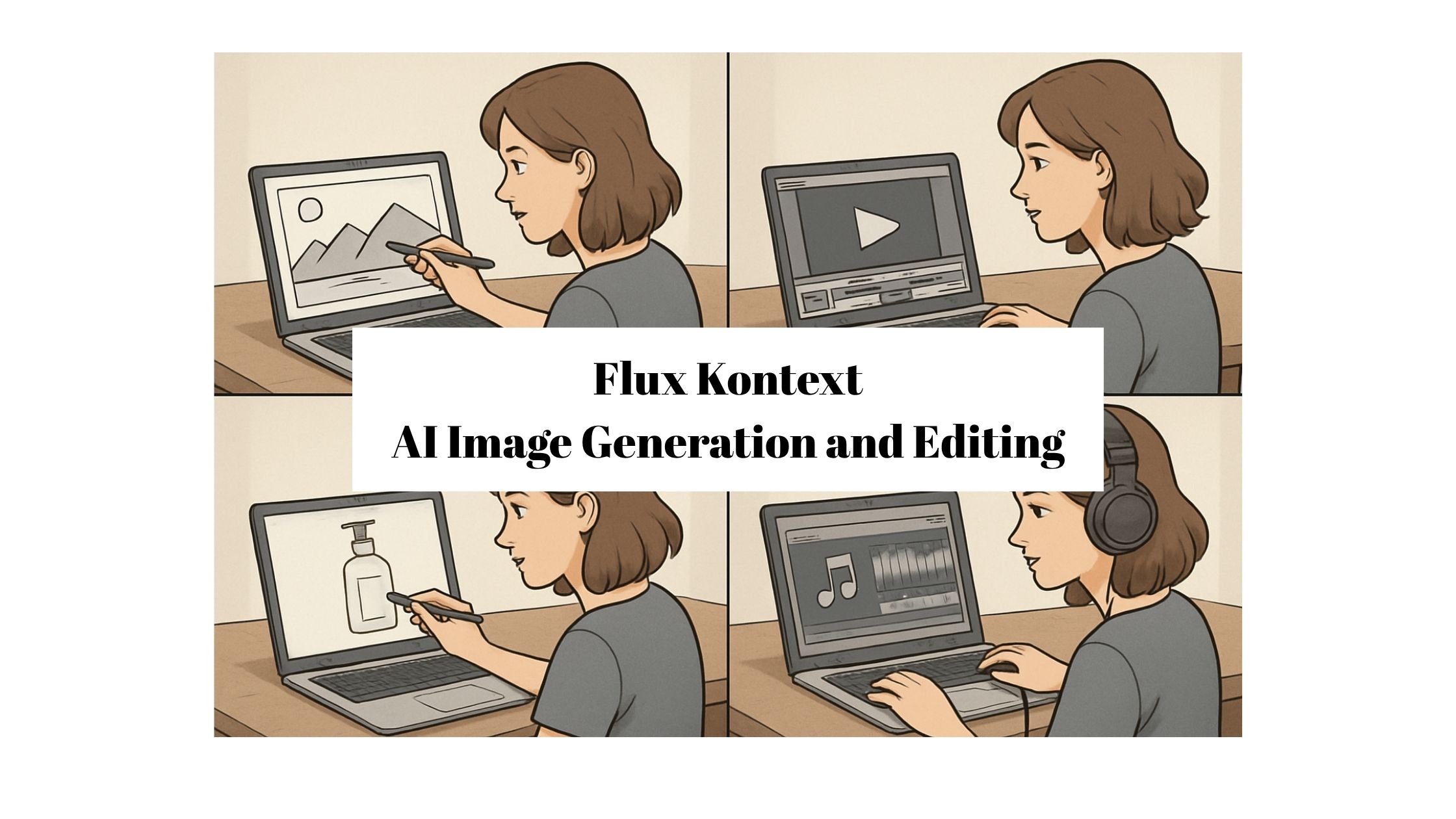

Saba Sohail
Thu Jul 03 2025
5 mins Read
FLUX Kontext is ImagineArt’s one of the most powerful image generation and editing model — designed for creators who need precision and consistency. From character continuity to region-based edits, it gives you control like never before inside the Image Studio.
What Is FLUX Kontext?
FLUX Kontext is a next-generation image generation and editing model from the FLUX 1.x family — and now a strong addition to the list of ImagineArt’s AI image generation models.
It’s designed to give users precise control over both image creation and in-image editing, combining fast performance with high visual fidelity. Whether you're generating from scratch or refining an existing image, Kontext supports a highly interactive, multi-turn workflow.
Input Options Available in Flux Kontext
FLUX Kontext offers flexible input modes that adapt to creative needs at any stage:
- Text Prompts: Generate rich, coherent scenes using natural language descriptions
- Image Uploads: Modify or remix any image using visual in-context references
- Sketches & Masks: Highlight specific zones or draw areas for localized edits
- Refinement Instructions: Guide the model step-by-step, like “sharpen the shadows” or “change the outfit to red”
Output Quality & Control Features in Flux Kontext
FLUX Kontext delivers professional-grade images with powerful controls and lightning-fast generation:
- High Resolution: Supports sharp outputs across a wide range of use cases (posters, thumbnails, concept art)
- Flexible Aspect Ratios: Easily create square (1:1), vertical (9:16), and widescreen (16:9).
- Lightning Speed: Flow-based rendering architecture generates visuals up to 8× faster than diffusion models
- Advanced User Control: Adjust specific image regions, preserve characters, or maintain consistent styles
- Bonus with ImagineArt: Use ImagineArt’s Image Studio to unlock even deeper customization — including prompt-controlled camera angles, lighting directions, and stylistic filters tailored to your creative goal
Features of FLUX Kontext
FLUX Kontext is more than a text to image model — it’s built for precision, speed, and iteration. Below are the core capabilities that set it apart from standard diffusion models.
1. In-Context Editing
FLUX Kontext allows precise edits to specific parts of an image without affecting the surrounding elements. This gives users surgical control over changes without restarting from scratch.
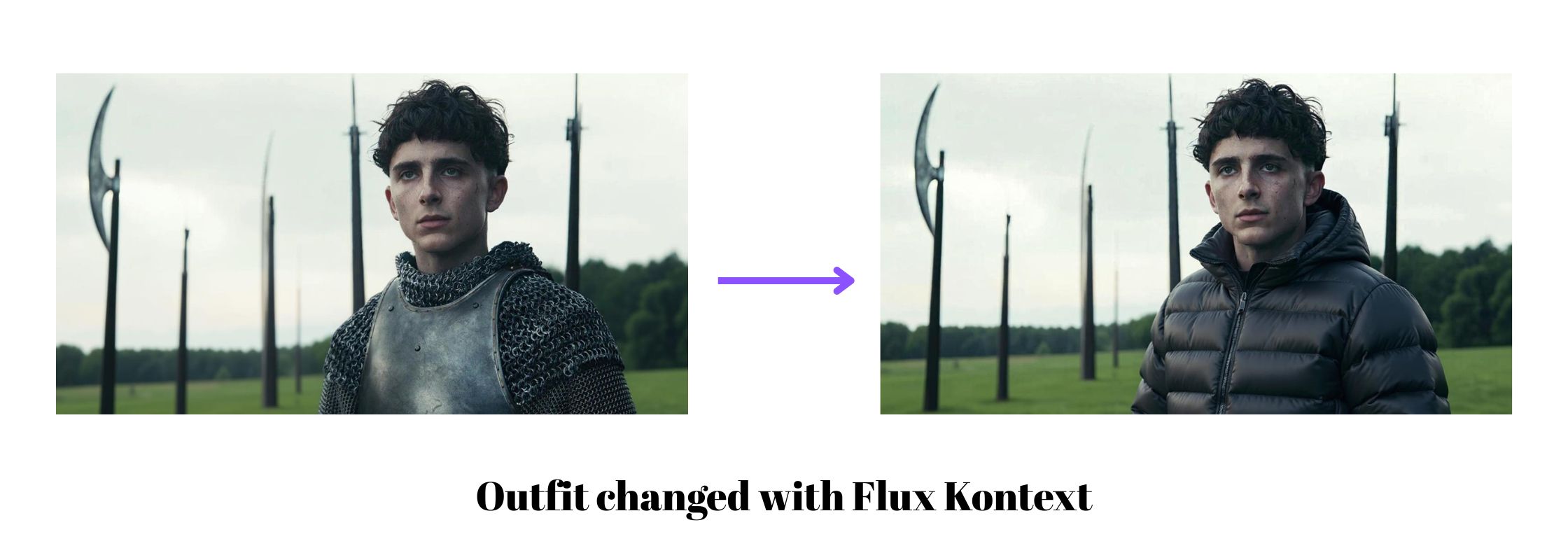 Flux Kontext
Flux Kontext
-
Supports brush masking, region selection, and instruction-based edits
-
Ideal for adjusting backgrounds, facial expressions, or single-object tweaks
-
Maintains layout and visual fidelity in the untouched areas
Prompt example:
Edit only the background to show a sunset beach without changing the character in the foreground
2. Multi-Turn Workflow
Instead of regenerating the entire image every time, Kontext enables a progressive editing experience. You can evolve an image across multiple creative steps.
- Chain prompts to refine, expand, or re-style the same image
- Saves time and GPU usage by reusing earlier outputs
- Useful for storytelling, client feedback loops, and complex compositions
Prompt example: Step 1: Generate a medieval castle — Step 2: Add torches to the entrance — Step 3: Change the sky to stormy night
3. Character & Style Consistency
FLUX Kontext preserves character identity and art style across generations. It’s perfect for creators who need repeatable visuals.
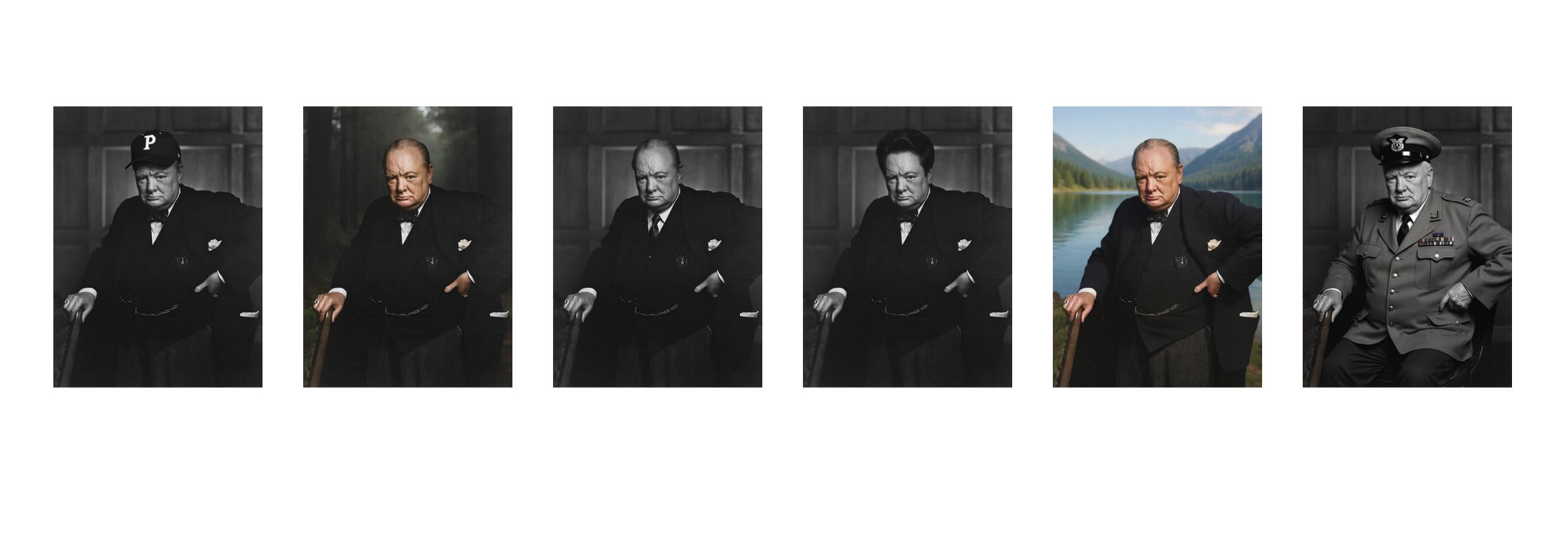 Character Consistency
Character Consistency
-
Maintains features like face, clothing, and poses over multiple prompts
-
Enables consistent illustration across storyboards, comics, or ads
-
Adapts to stylistic constraints like “watercolor,” “3D,” or “sketch”
Prompt example:
Keep the same anime character walking through a forest, then show her sitting by a lake
4. Localized Visual Changes
Users can apply visual edits only to selected zones without disturbing the rest of the image. Great for revisions and micro-adjustments.
-
Targeted inpainting for seamless corrections
-
Supports text commands or masking for isolated edits
-
Prevents model from over-interpreting the prompt
Prompt example:
Only change the signboard text to 'Welcome to Kyoto', keep everything else unchanged
5. Text-in-Image Editing & Typography
FLUX Kontext allows smart replacement or stylization of text directly inside the image. Unlike typical models, it treats text as a first-class editable element.
-
Adjusts font size, positioning, and alignment with high precision
-
Great for posters, memes, ads, or brand templates
-
Recognizes context of signs, banners, books, etc.
Prompt example:
Replace the billboard text with "Grand Opening — 50% Off Today"
6. Style Transfer & Visual Remixing
This capability lets users reimagine an existing image in a new visual style, all while preserving the core composition or subject.
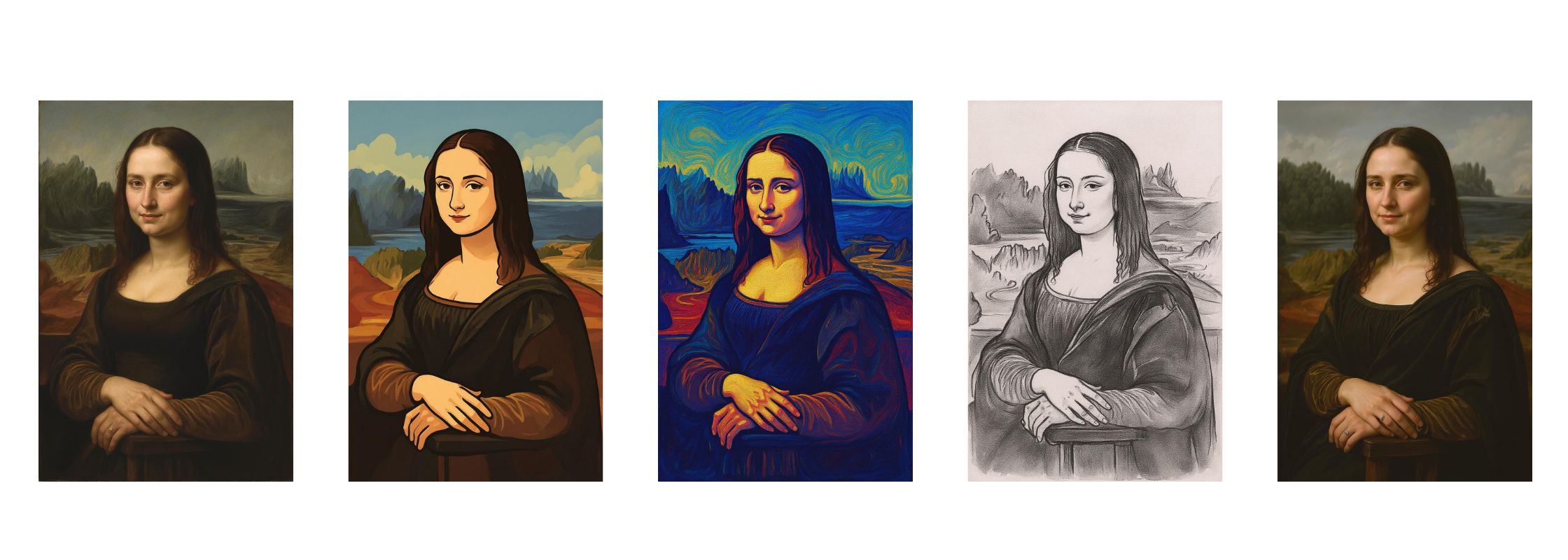 image editing.jpg
image editing.jpg
-
Uses prompt-based or image-based style cues
-
Supports fine art styles, pop culture aesthetics, and visual trends
-
Works well for brand testing, moodboards, and experiments
Prompt example:
Apply Ghibli-style rendering to a downtown New York street scene
7. Fast Rendering (Up to 8× Faster Than Diffusion Models)
FLUX Kontext is built on a rectified flow-based model that skips the slow denoising of traditional diffusion, delivering high-quality images in a fraction of the time.
-
Generates in 1–4 steps vs. 20–50 in typical models
-
Low GPU memory usage, ideal for edge or local deployment
-
Enables real-time feedback for design iteration
Prompt example:
Generate a cyberpunk alleyway scene with glowing neon signs — fast mode
Use Cases of Flux Kontext
- Brand Design Iterations
Rapidly test logos, packaging, or ad visuals with consistent styling and editable regions.
- AI Comic & Storyboard Creation
Maintain character consistency and tweak scenes across multiple panels.
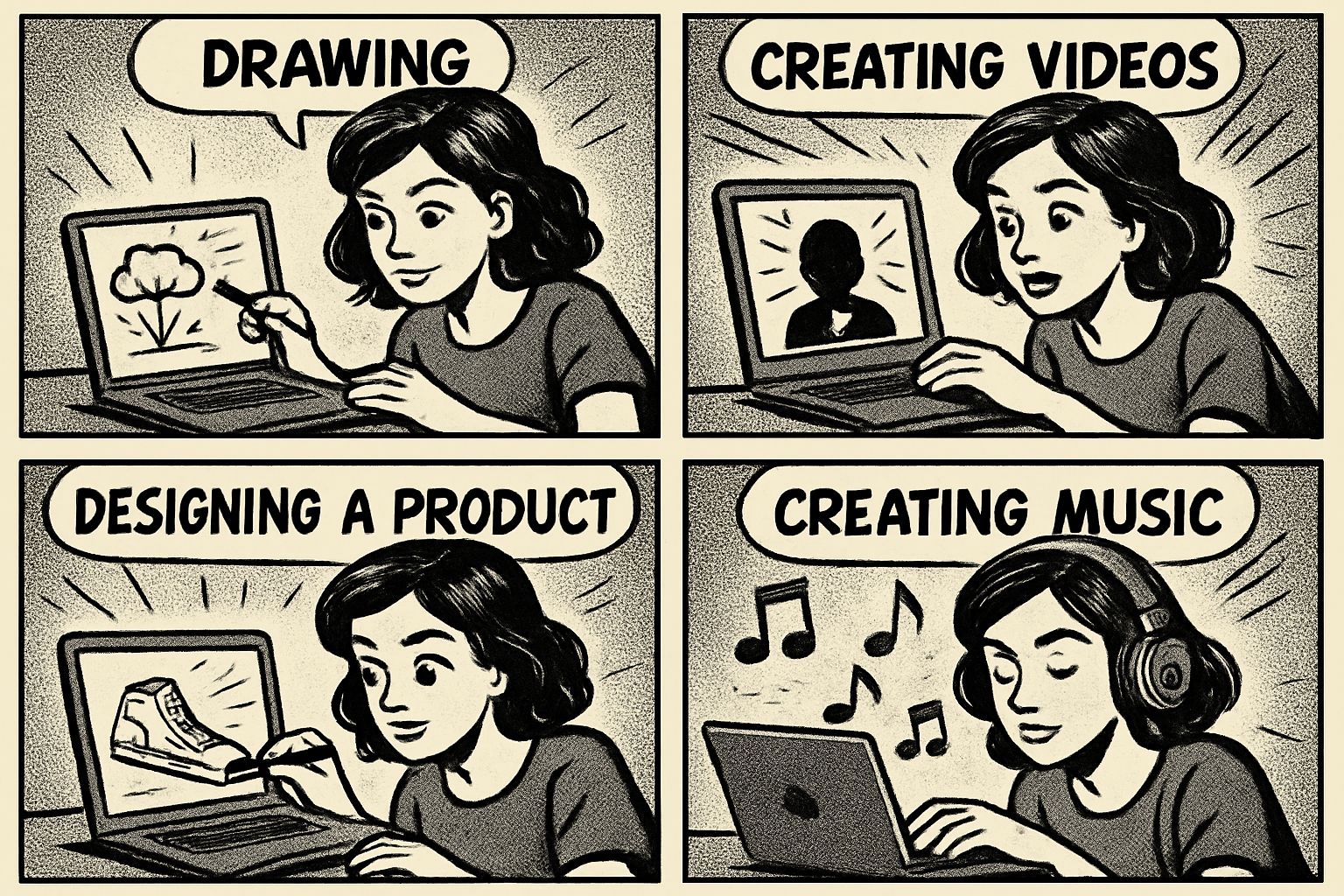 Comic Generation with Flux
Comic Generation with Flux
- Product Mockups & Marketing Visuals
Add text, change backgrounds, or adjust colors without regenerating the whole image.
- Educational Visuals & Infographics
Insert or edit labels, typography, or style without design tools.
- Creative Concept Development
Start rough with sketches or reference images, then refine step-by-step.
- Poster & Thumbnail Design
Add styled titles, swap backgrounds, or remix colors for social-ready assets.
- Asset Updates for Games or Apps
Modify character outfits, poses, or UI elements without breaking style.
Now you can access and use Flux 2 on ImagineArt AI image generator for improved realism, text rendering, and image editing capabilities. Try now!

Saba Sohail
Saba Sohail is a Generative Engine Optimization and SaaS marketing specialist working in automation, product research and user acquisition. She strongly focuses on AI-powered speed, scale and structure for B2C and B2B teams. At ImagineArt, she develops use cases of AI Creative Suite for creative agencies and product marketing teams.